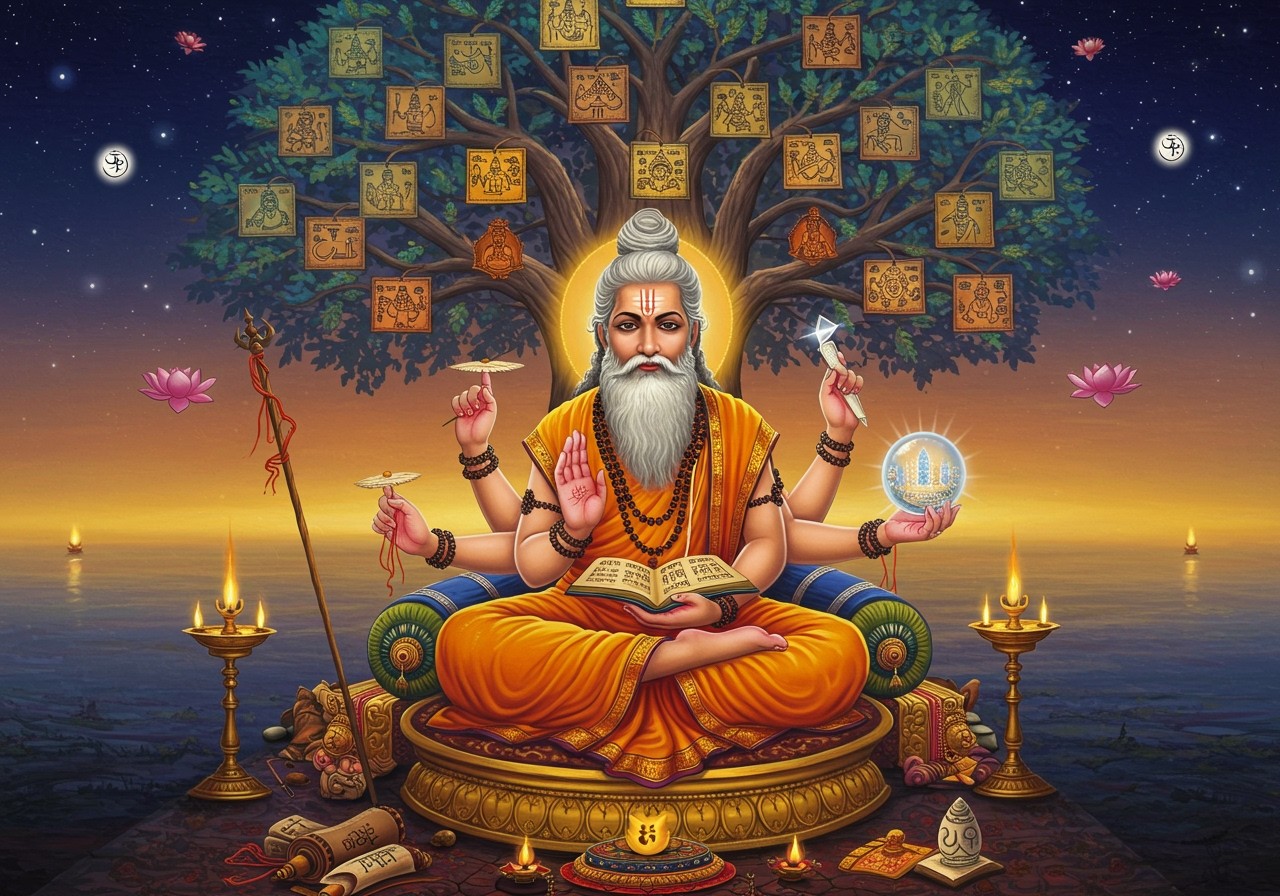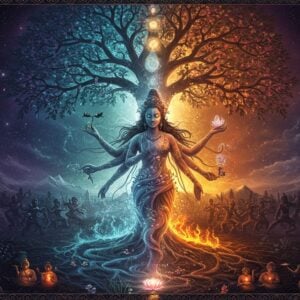
Vyasa, also known as Veda Vyasa or Krishna Dvaipayana, holds a position of high regard in Hindu traditions. His profound influence on Hinduism’s spiritual and cultural landscape stems from his monumental contributions to ancient Indian literature and philosophy. He is widely celebrated for his wisdom and considered a pivotal figure in the development of Hindu thought.
Vyasa’s Key Contributions to Hinduism
Vyasa’s importance is rooted in his diverse contributions across many areas of religious and philosophical thought. He is not only credited with compiling and organizing fundamental texts but is also revered as the author of epic narratives that continue to shape Hindu beliefs and practices.
- Compiler of the Vedas: Vyasa is traditionally recognized as the compiler and organizer of the Vedas. These sacred scriptures, considered the oldest and most authoritative in Hinduism, were arranged by Vyasa into four distinct parts: the Rig Veda, Yajur Veda, Sama Veda, and Atharva Veda. This systematic division was critical for preserving the Vedas and making them more accessible for study, thereby ensuring their continued relevance and influence across generations. This organization facilitated the transmission of these complex texts, safeguarding their wisdom for future generations.
- Author of the Mahabharata: One of the world’s longest epic poems, the Mahabharata, is attributed to Vyasa’s authorship. More than just a historical account, the Mahabharata is a rich tapestry of philosophical discussions, moral dilemmas, and teachings on dharma (righteous conduct). Embedded within the Mahabharata is the Bhagavad Gita, a revered dialogue between Arjuna and Krishna that explores profound spiritual concepts and forms a cornerstone of Hindu philosophy. The Mahabharata continues to be studied for its intricate narratives, philosophical depth, and insights into the complexities of human existence. It offers guidance on navigating life’s challenges and pursuing a path of dharma.
- Author of the Puranas: Vyasa is also credited with authoring the eighteen Puranas. These texts play a vital role in communicating the philosophical and moral principles of the Vedas to a wider audience. Utilizing myths, legends, and traditional folklore, the Puranas present complex spiritual concepts in a more accessible and engaging format. They offer valuable insights into Hindu cosmology, mythology, and ancient history, making them a vital resource for understanding the rich tapestry of Hindu beliefs. Through storytelling and engaging narratives, the Puranas deepen understanding of Hindu cosmology, mythology, and history.
- Author of the Brahma Sutras: Vyasa is believed to be the author of the Brahma Sutras, a foundational text of the Vedanta school of philosophy. This work systematically outlines the core principles of Vedanta, providing a framework for understanding the Upanishads and their teachings on the nature of reality. The Brahma Sutras are essential for those seeking a deeper understanding of Vedanta philosophy and its interpretation of the Upanishads.
- Preserver of Vedic Knowledge: Vyasa’s efforts in dividing the vast oral tradition of the Vedas into four sections were instrumental in preserving this ancient wisdom. This division made the Vedas easier to study and transmit to future generations. His foresight ensured the survival of these sacred texts and their continued relevance in Hindu thought. By dividing the Vedas, Vyasa facilitated the preservation of this invaluable knowledge for generations to come.
- Legacy as a Guru: As the compiler and author of a wealth of spiritual literature, Vyasa is regarded as the original guru. His birth is commemorated annually on Guru Purnima, a day dedicated to honoring spiritual teachers. His teachings and writings continue to guide spiritual seekers, solidifying his legacy as a source of profound wisdom. Guru Purnima serves as a reminder of Vyasa’s enduring contribution to spiritual guidance.
Vyasa’s Enduring Influence
Vyasa’s works promote a balanced life, emphasizing the harmony of knowledge, action, and devotion for spiritual growth. His teachings on ethics, the human condition, and the ultimate goals of life continue to resonate with people across the globe. They inspire philosophical, theological, and ethical discourse worldwide, and his wisdom remains relevant even in the modern era. Vyasa is often considered a Chiranjivi, one of the immortal beings destined to live until the end of the current age (Kali Yuga), guiding spiritual seekers and scholars.
For those interested in delving deeper into Hindu scriptures, poojn.in offers a wide selection of religious texts, including the Bhagavad Gita and various Puranas. Explore our collection of sacred texts at poojn.in to enhance your understanding of Hindu philosophy and tradition.
You might also find resources beneficial on Hindu rituals and sacred texts: Learn more about Hindu rituals here. If you are looking for information regarding sacred texts, you can check out our guide to key scriptures.
Poojn.in offers various products for your puja needs, such as sacred threads and clay diyas.


